Research and Projects
“The key to prediction and understanding lies in the elucidation of mechanisms underlying observed patterns” - Levin (1992 Ecology).
The BioM2 Lab leverages novel ecological data sets, advanced computational tools, and theoretical analysis to gain insights on the principles and the related key processes to predict terrestrial biosphere dynamics. Our research projects focus mostly on forest ecosystems and address classic questions across ecological scales such as To what extent do traits determine plant performance and vital rates? What are the key dimensions of plant functional diversity? How do biodiversity and environmental heterogeneity interact to determine large-scale processes such as carbon and water cycles? Our lab also develops novel quantitative methods to extract ecologically relevant information from multi-platform remote sensing products (particularly terrestrial lidar data).
Current lab research revolves around Resilience of Tropical Forest Under Climate Change and Monitoring and Modeling Temperate Forest Carbon Sequestration
Resilience of Tropical Forest Under Climate Change
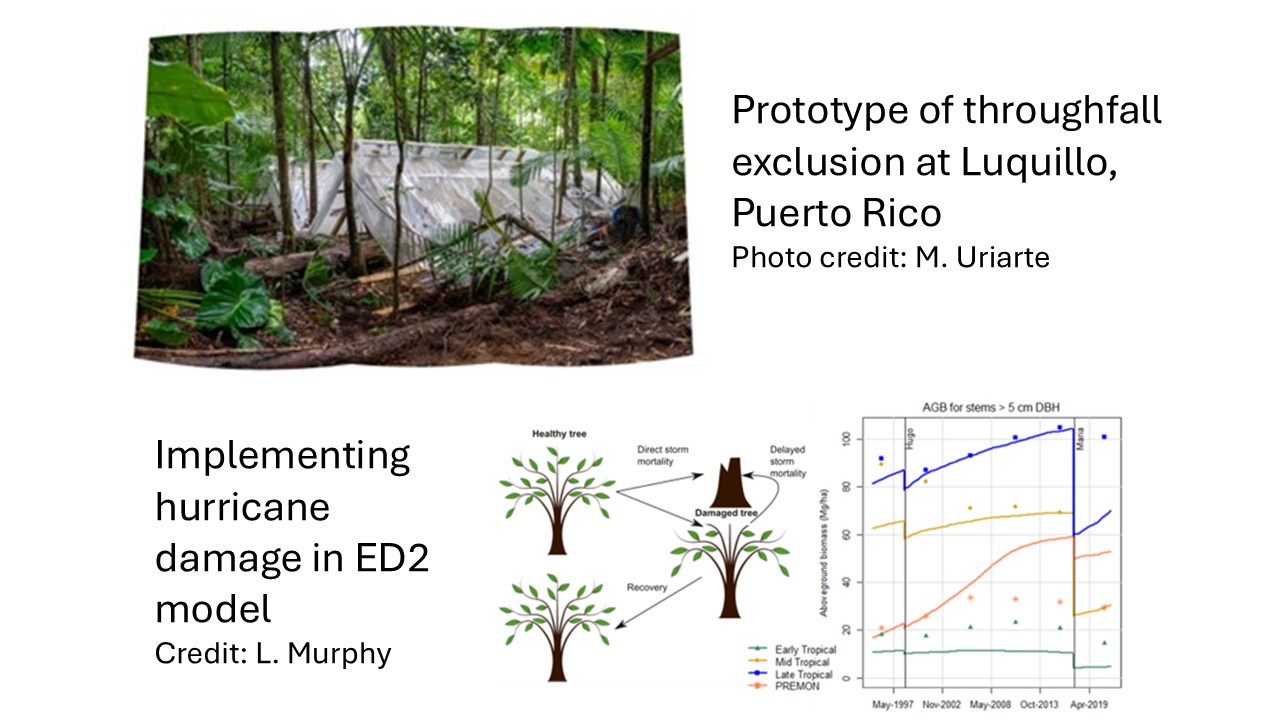
Drought impacts on post-hurricane recovery in tropical forests
Climate change is expected to increase temperatures and lead to stronger droughts across many regions. Beyond its effects on temperature and precipitation, climate change is also expected to increase the frequency and/or itensity of disturbances. Yet our understanding of the effects of climate stressors, such as drought, on post-disturbance ecosystem recovery is extremely limited. This NSF-funded project is conducting a large-scale throughfall exclusion experiment in the Luquillo Experimental Forest in Puerto Rico, an ecosystem that is recovering from the passage of Hurricane Maria in 2017. Data from this project will complement our understanding of the legacies of tree damage and post-disturbance forest dynamics under drought. The field data will be further used to improve a process-based terrestrial biosphere model, particularly on partial crown damage and recovery and carbon-water coupling in plant physiology
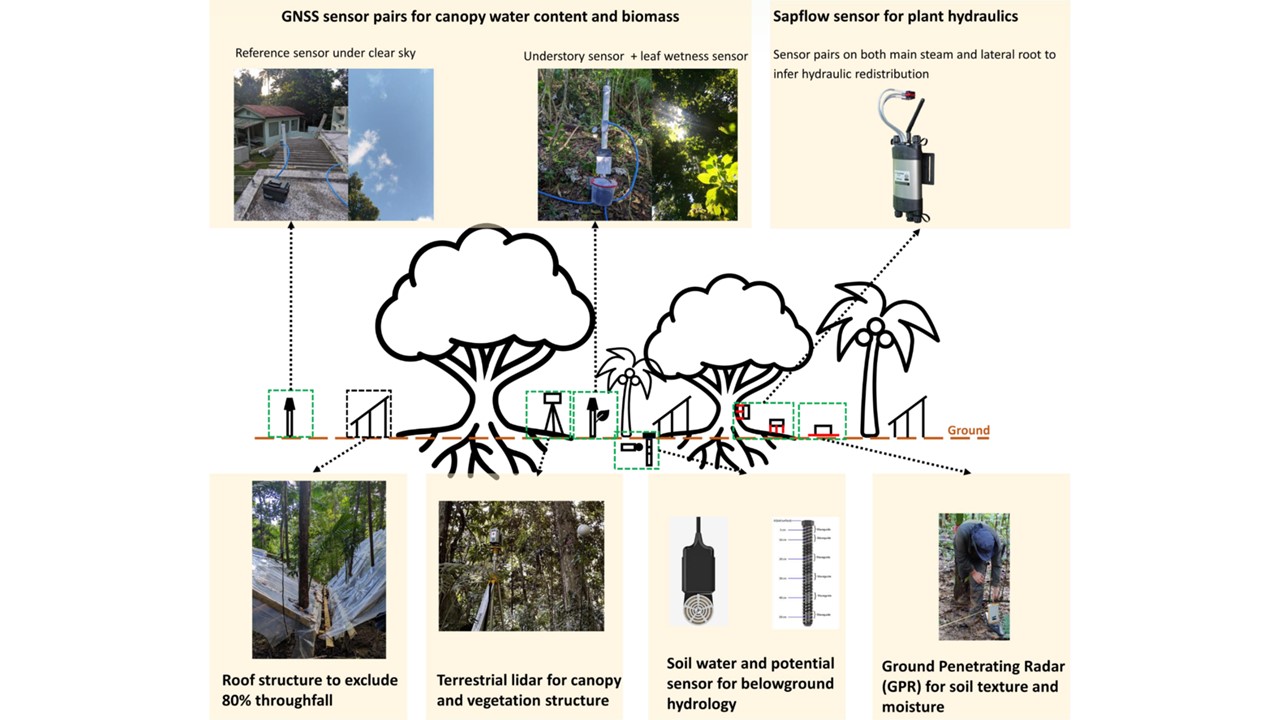
MACROCOSM: Monitor And Constrain tROpical eCOsystem Sensitivity to Moisture
How tropical vegetation respond to moisture changes and how these responses in turn regulate ecosystem water dynamics constitutes a major uncertainty in ecohydrological predictions in Earth System Models. In this Department of Energy funded project, we aim to improve our mechanistic understanding of plant-mediated ecohydrology by monitoring and modeling ecosystem dynamics at a new manipulative throughfall exclusion (TFE) experiment at Luquillo LTER station, Puerto Rico.
Monitoring and Modeling Temperate Forest Carbon Sequestration
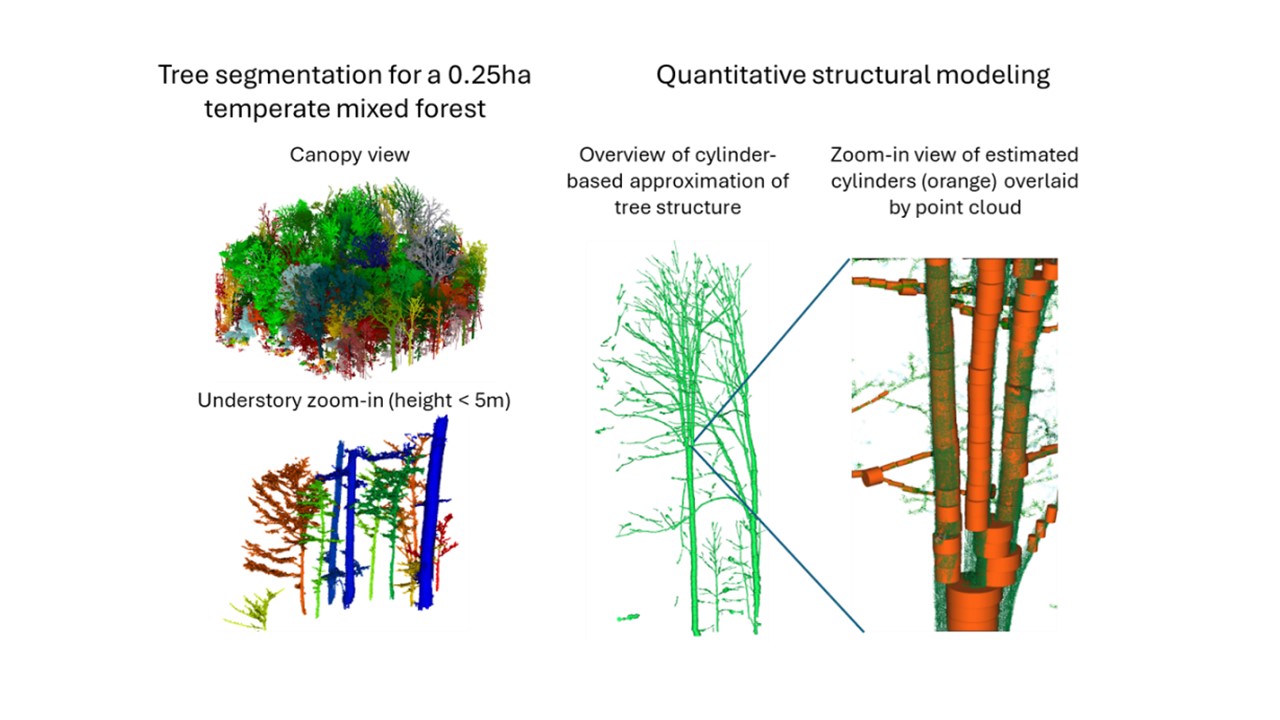
Measuring temperate carbon stock and dynamics with terrestrial laser scanning
Temperate forests are a globally important carbon sink, absorbing about 0.6 Pg of carbon every year. Maintaining and boosting temperate forest carbon sinks through forest management, conservation, and afforestation, is a major component of nature-based climate solutions. This project, supported by both USDA and NY DEC will utilize repeated TLS scans to monitor aboveground biomass in upstate NY. Results from the project will improve our mechanistic understanding of temperate forest carbon storage and sequestration.
More
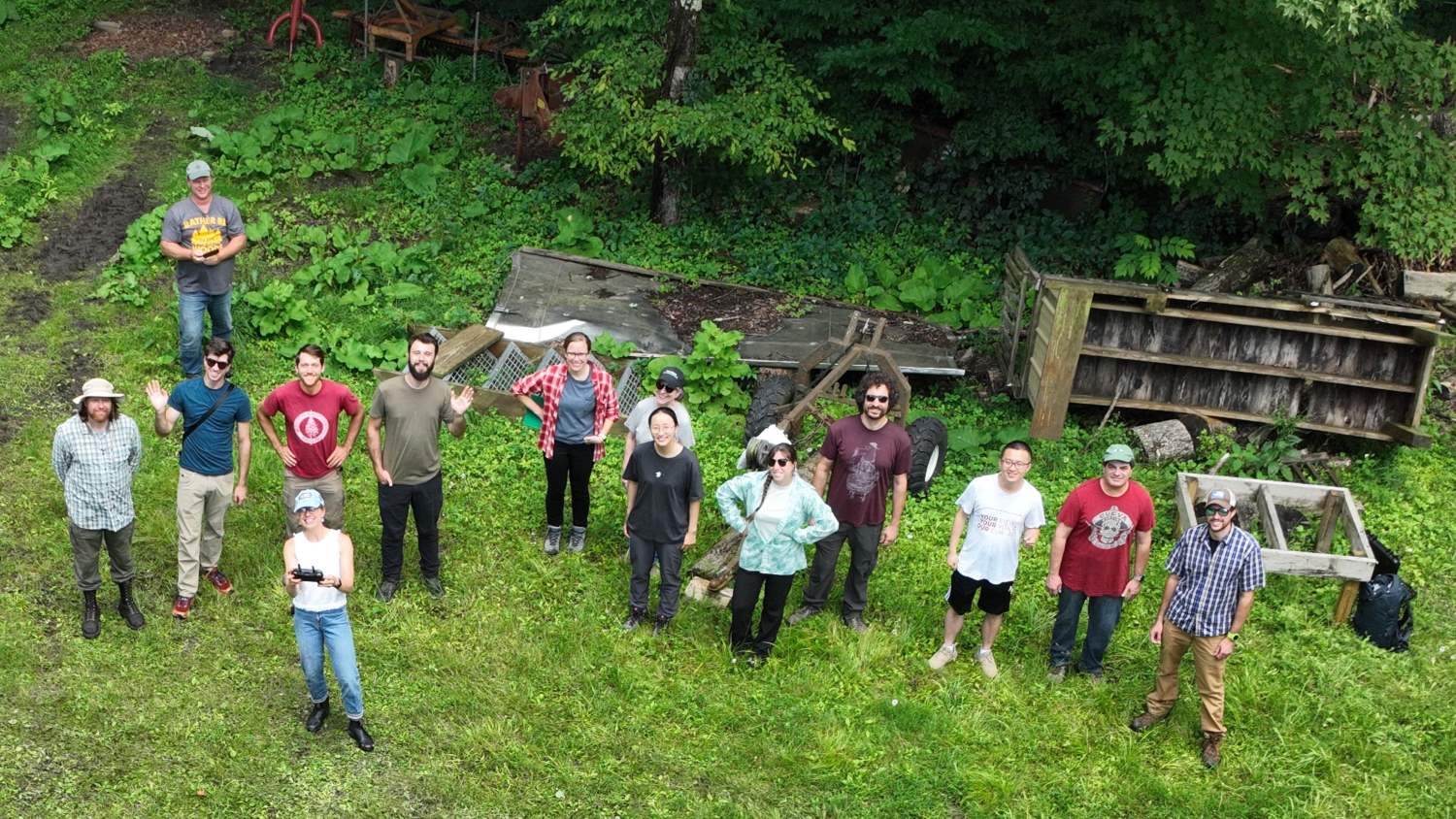
This project creates a next-generation forestry research hub that provides resources and expertise for integrating novel remote sensing (e.g. drone, lidar, etc.) and computational techniques with conventional forestry measurements across a range of departments at Cornell
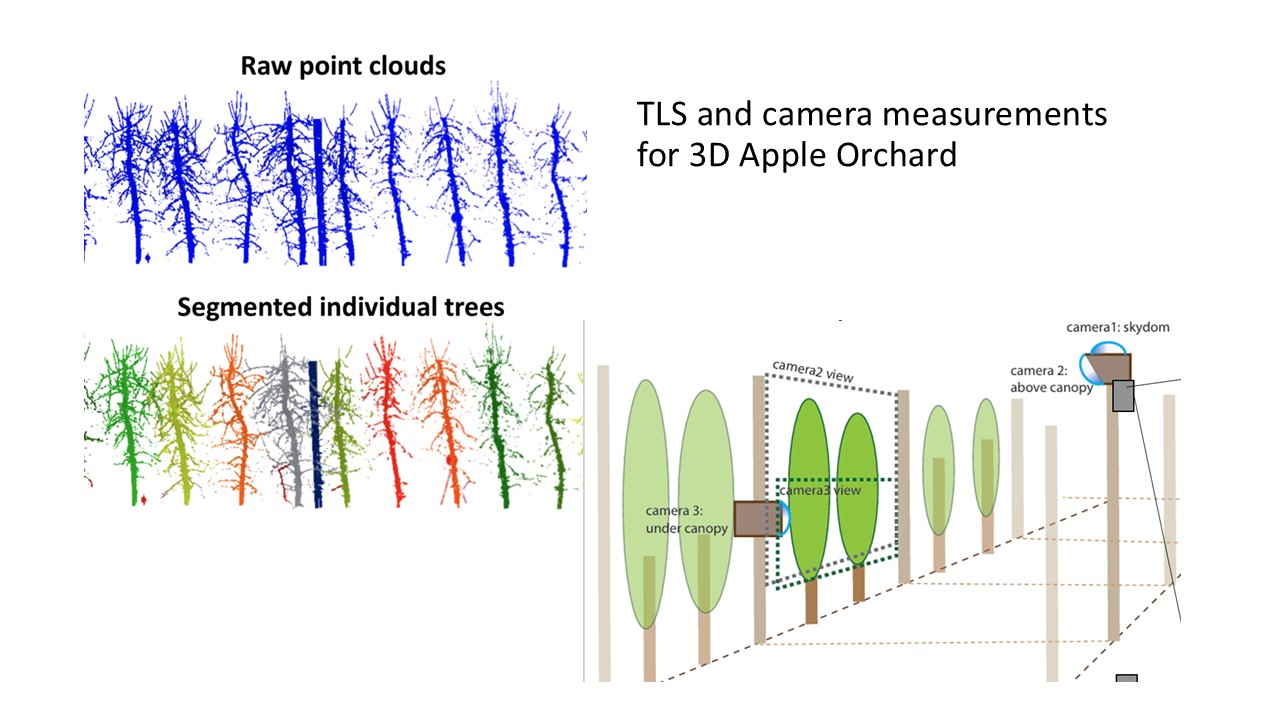
In collaboration with computer scientists, This project quantifyies 3D vegetative growth and light environment for orchard trees with terrestrial lidar and computational modeling. The project is funded by Cornell Institute of Digital Agriculture (CIDA)